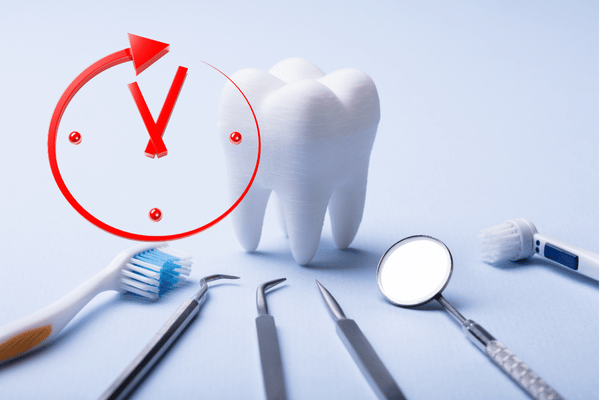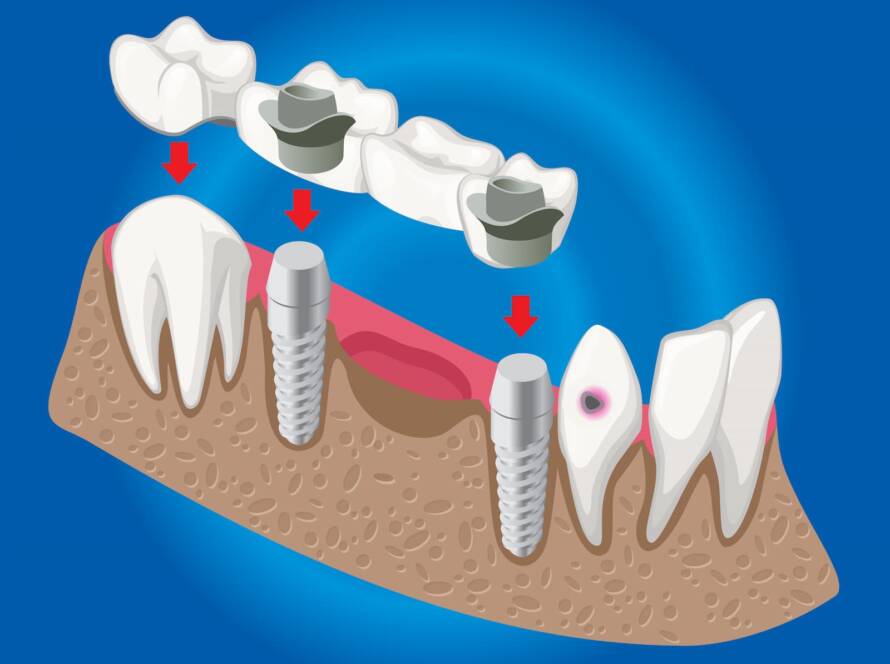Stress and anxiety have been recognized as significant factors that can impact an individual’s overall health and well being. When it comes to dental health, the effects of stress and anxiety can be particularly profound. These psychological factors can manifest physically in the form of teeth grinding, jaw clenching, poor oral hygiene habits, and even the development of certain oral conditions.
- Stress and anxiety can lead to bruxism, a condition characterized by grinding or clenching of the teeth, especially during sleep. This can result in worn enamel, tooth sensitivity, and even fractures in severe cases.
- Poor oral hygiene habits, such as neglecting regular brushing and flossing, can be a consequence of heightened stress levels. This neglect can lead to issues like cavities, gum disease, and bad breath.
- Individuals experiencing high levels of stress or anxiety may also be more prone to temporomandibular joint (TMJ) disorder, a condition that affects the joint connecting the jaw to the skull and can cause pain and difficulty with jaw movement.
In addition to these direct impacts on oral health, stress and anxiety can also weaken the immune system, making individuals more susceptible to infections and delaying the healing process after dental treatments. Therefore, understanding the relationship between stress, anxiety, and dental health is crucial for both patients and dental professionals in providing comprehensive care and promoting overall well being.
Understanding Stress and Anxiety
Stress and anxiety can significantly impact an individual’s overall health, including their dental health. Understanding how these psychological factors affect oral well being is crucial for maintaining a healthy smile. Here are some key points to consider:
- Effects on Oral Health: Stress and anxiety can manifest physically in the mouth through teeth grinding, jaw clenching, and poor oral hygiene habits. These behaviors can lead to issues such as temporomandibular joint (TMJ) disorder, bruxism, and an increased risk of gum disease.
- Impact on Immune System: Prolonged stress weakens the immune system, making individuals more susceptible to infections, including oral infections. This can result in conditions like canker sores, cold sores, and oral thrush.
- Contributing Factors: Stress and anxiety often contribute to unhealthy habits like smoking, poor dietary choices, and alcohol consumption, which can further deteriorate dental health.
- Exacerbating Existing Conditions: Individuals with pre existing dental conditions may experience worsening symptoms due to stress and anxiety. For example, individuals with periodontal disease may see an increase in inflammation during periods of heightened stress.
- Coping Strategies: Practicing stress reducing techniques such as mindfulness, deep breathing exercises, regular physical activity, and seeking professional help through therapy can help manage stress and anxiety and, in turn, improve dental health.
Understanding the relationship between stress, anxiety, and dental health is essential for taking proactive steps to maintain good oral hygiene. By addressing psychological well being, individuals can positively impact their overall health and preserve their smiles for years to come.
The Connection Between Stress, Anxiety, and Dental Health
Stress and anxiety can significantly impact an individual’s dental health. Here are some key factors explaining the relationship between stress, anxiety, and oral health:
- Bruxism: Chronic stress and anxiety can lead to bruxism, a condition where a person clenches or grinds their teeth involuntarily. This can result in tooth wear, jaw pain, headaches, and other dental issues.
- Gum Disease: High stress levels can weaken the immune system, making individuals more susceptible to gum disease. This can manifest as inflammation, bleeding gums, and ultimately lead to more severe periodontal issues if left untreated.
- Poor Oral Hygiene: Stress and anxiety may lead to neglecting proper oral hygiene practices such as brushing and flossing regularly. This can increase the risk of cavities, gum disease, and other oral health problems.
- Temporomandibular Joint (TMJ) Disorders: Stress can contribute to the development of TMJ disorders, causing pain and dysfunction in the jaw joint. This can result in difficulties with chewing, speaking, and even opening or closing the mouth comfortably.
Maintaining good mental health practices and seeking support to manage stress and anxiety can positively impact overall well being, including dental health. Regular dental check ups, professional cleanings, and addressing any concerns promptly can help mitigate the effects of stress and anxiety on oral health.
Effects of Stress and Anxiety on Oral Health
- Stress and anxiety can lead to a variety of oral health issues such as bruxism, which is the involuntary grinding of teeth.
- Prolonged stress can weaken the immune system, making individuals more susceptible to gum disease and infections in the mouth.
- Stress is also linked to dry mouth, a condition that can increase the risk of tooth decay and bad breath.
- Individuals experiencing stress and anxiety may neglect their oral hygiene routines, further exacerbating their dental health problems.
- Stress induced habits like nail biting or chewing on objects can harm teeth and jaw joints over time.
- Chronic stress can contribute to temporomandibular disorders (TMD), which lead to jaw pain, headaches, and difficulty chewing.
- Stress management techniques such as mindfulness, exercise, and therapy can help reduce the negative impact of stress on oral health.
In conclusion, it is crucial for individuals to recognize the effects of stress and anxiety on their oral health and take proactive steps to manage their stress levels effectively.
Common Dental Issues Caused by Stress and Anxiety
- Bruxism: Individuals experiencing stress and anxiety may unknowingly grind or clench their teeth, a condition known as bruxism. This habit can lead to tooth wear, fractures, and jaw pain.
- Temporomandibular Joint Disorder (TMJ): Stress and anxiety can exacerbate TMJ symptoms, causing jaw pain, clicking or popping noises when opening or closing the mouth, and difficulty with jaw movement.
- Gum Disease: Stress weakens the immune system, making individuals more susceptible to gum disease. Periodontal issues like inflammation, bleeding gums, and possible tooth loss can occur due to increased stress levels.
- Canker Sores and Cold Sores: Stress may trigger the appearance of canker sores inside the mouth or cold sores around the lips. These painful lesions can be exacerbated by stress and anxiety.
- Dry Mouth: Stress can reduce saliva flow, leading to dry mouth. This condition not only causes discomfort but also increases the risk of cavities and other dental problems due to inadequate saliva’s protective properties.
- Poor Oral Hygiene: High stress levels often result in neglecting oral hygiene practices, such as brushing and flossing regularly. This lack of proper dental care can lead to a variety of issues like cavities, gum disease, and bad breath.
By understanding how stress and anxiety impact dental health and recognizing the associated symptoms, individuals can take proactive steps to manage stress levels and maintain good oral hygiene practices.
Impact of Stress and Anxiety on Gum Disease
- Chronic stress and anxiety can weaken the immune system, making individuals more susceptible to gum disease.
- Stress can lead to poor oral hygiene habits like neglecting regular brushing and flossing, increasing the risk of gum disease.
- Individuals under stress may also experience increased levels of inflammation in the body, which can exacerbate gum disease.
- Stress related behaviors such as teeth grinding or clenching can contribute to gum problems, such as receding gums or tooth sensitivity.
- Anxiety can cause hormonal changes that may affect gum health and increase the likelihood of developing gum disease.
Experiencing stress and anxiety can have significant implications for gum disease, ranging from decreased immune function to poor oral hygiene habits. It is essential for individuals to manage their stress levels effectively to maintain optimal dental health.
Tips for Managing Stress and Anxiety for Better Dental Health
- Practice Relaxation Techniques: Encourage patients to try deep breathing, meditation, or yoga to reduce stress levels and promote overall well being.
- Maintain a Healthy Lifestyle: Emphasize the importance of regular exercise, balanced nutrition, and adequate sleep to support both mental and dental health.
- Establish a Routine: Suggest creating a daily routine that includes time for self care and relaxation to help manage stress and anxiety effectively.
- Seek Professional Help: Recommend talking to a mental health professional or counselor if stress and anxiety become overwhelming or persistent.
- Communicate Openly: Encourage patients to communicate any dental concerns or anxieties with their dentist to ensure proper care and support.
- Practice Good Oral Hygiene: Remind individuals to maintain regular brushing, flossing, and dental check ups to prevent oral health issues exacerbated by stress.
- Limit Caffeine and Alcohol: Advise reducing consumption of stimulants like caffeine and alcohol, as they can worsen feelings of anxiety and stress.
- Stay Connected: Encourage patients to maintain social connections with friends and loved ones to build a support system during stressful times.
Importance of Seeking Professional Help
Seeking professional help is crucial when dealing with stress and anxiety that may impact dental health. Professionals, such as therapists, psychologists, or counselors, are trained to assist individuals in managing stress and anxiety effectively. Here are some reasons why seeking professional help is important:
- Specialized Support: Professionals can provide specialized support tailored to the individual’s unique needs and circumstances. They can offer coping strategies, relaxation techniques, and mindfulness exercises to help alleviate stress and anxiety.
- Identifying Root Causes: Professionals can help identify the root causes of stress and anxiety, which may be contributing to dental health issues. By addressing these underlying issues, individuals can better manage their symptoms and prevent further damage to their oral health.
- Preventative Measures: Seeking professional help early on can help prevent potential dental problems that may arise from stress and anxiety. Professionals can offer guidance on stress management techniques that can reduce the impact of stress on oral health.
- Holistic Approach: Professionals take a holistic approach to addressing stress and anxiety, considering the interconnectedness of physical and mental health. By addressing stressors in both areas, individuals can improve their overall well being and prevent dental health issues.















